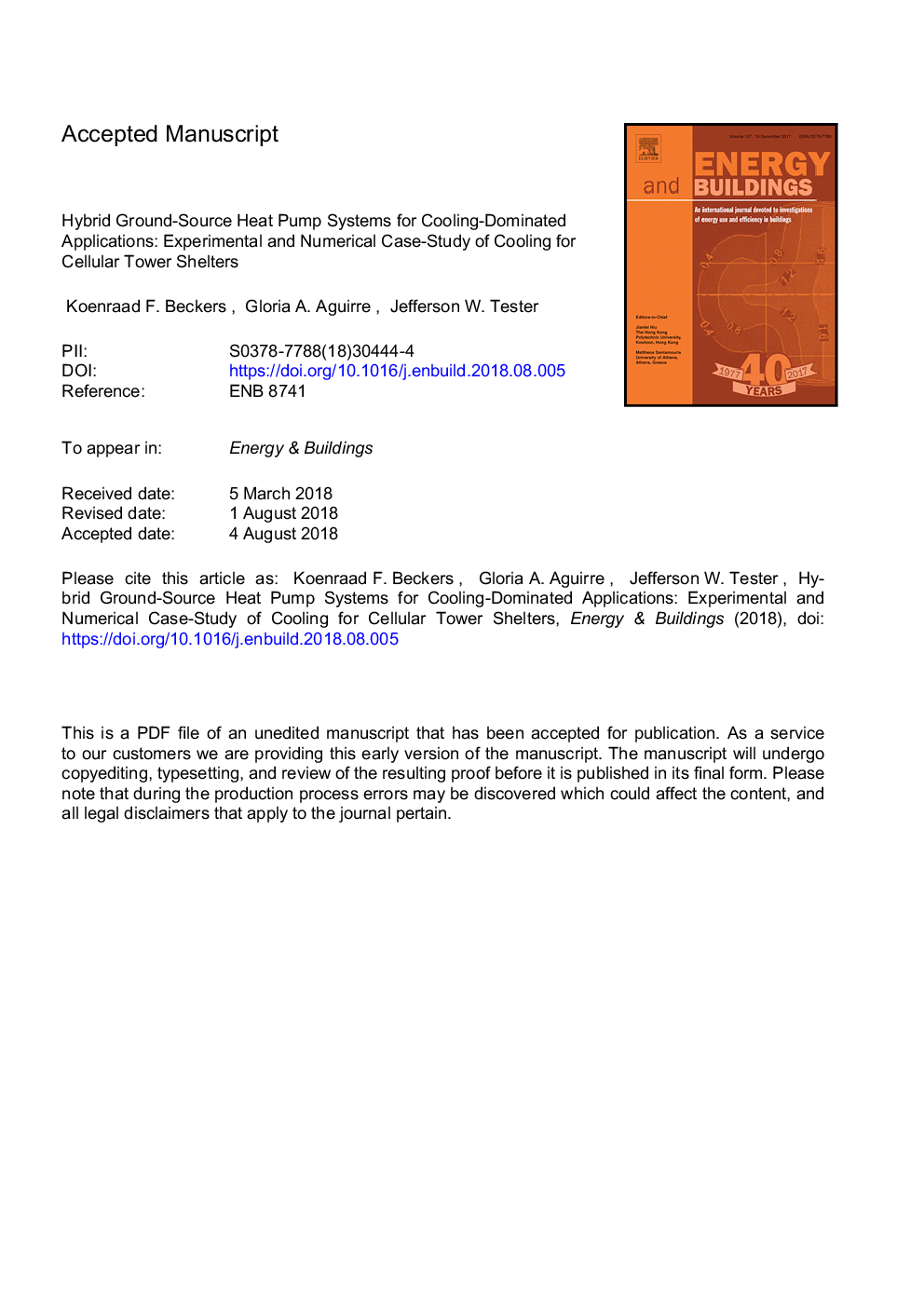| Article ID | Journal | Published Year | Pages | File Type |
|---|---|---|---|---|
| 10126883 | Energy and Buildings | 2018 | 21 Pages |
Abstract
Techno-economic performance of hybrid ground-source (geothermal) heat pump systems for cooling-dominated applications has been investigated. An experimental hybrid ground-source heat pump system, providing an average cooling load of 11Â kWth for a cellular tower shelter in Varna, New York, United States (“Varna Site”), was commissioned in 2014 and has been extensively monitored. An air-economizer and dry-fluid cooler provide supplemental heat rejection and limit thermal imbalance in the subsurface. Measurements and analysis showed that over its first two years of operation, the average total system coefficient of performance was 4.8. Various hybrid and non-hybrid ground-source and air-source heat pump configurations have been studied using TRNSYS, calibrated with data measured at the Varna Site. Simulations indicate that for the Varna Site weather and operational conditions, ground-source heat pump-based systems allow the owner to save up to 30% of lifetime electricity consumption in comparison with air-source heat pump-based systems. However, air-source heat pump-based systems can have up to 10% lower total cost of ownership, mainly because of lower upfront capital costs. In the base-case scenario, the hybrid configuration of ground-source heat pump with air-economizer has the lowest lifetime energy consumption of 222Â MWhe; the hybrid configuration of air-source heat pump with air-economizer has the lowest lifetime total cost of ownership of $54,000.
Keywords
Related Topics
Physical Sciences and Engineering
Energy
Renewable Energy, Sustainability and the Environment
Authors
Koenraad F. Beckers, Gloria A. Aguirre, Jefferson W. Tester,
